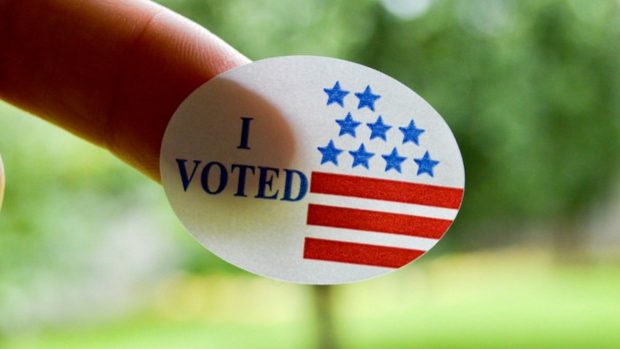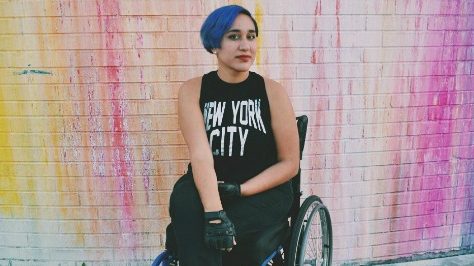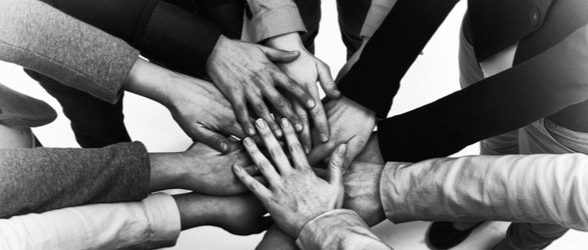Midterm Elections are Over, But Our Work for Disability Representation in Government Isn’t Done
Minority groups have always been under- or un-represented in office – a fact that has left far too many voices out of the process of creating the laws we all must live by. November’s election brought a shift as the government has moved a step closer to what it has always professed to be: representative. I believe the record-breaking numbers of women, people of color, and LGBTQ people elected to public office at local, state, and national levels will strengthen our government, enabling it to better serve more of the people it represents. But in all the discussions of this landslide of diversity, people with disabilities were hardly mentioned.
The National Council on Independent Living (NCIL) recently began compiling data on disabled candidates and lawmakers. There are currently 12 disabled elected official at the federal level. This year NCIL identified 20 disabled candidates who ran at the federal level. These numbers are far too small, but they are a start.
Of course, the decision to run for office is not to be taken lightly. Underrepresented groups face challenges no matter what our identities when it comes time to run for office. And for those of us with disabilities, there are barriers, both financial and accessibility-based, which can amplify this challenge. Running for office demands a grueling schedule, multiple stops per day in possibly inaccessible locations. But I believe that disabled people have the creativity to map a new path to office.
Disabled people willing to run for office will be opening doors for countless others. Disabled leaders bring insight to how best to build an accessible society AND encourage other candidates with disabilities to run by showing that it is possible.
As an example, Vox recently examined the progress and challenges faced by women running for office. One study found that if a woman became a state senator or governor, the next election cycle would see an average of seven more women running for office. In this light we must celebrate the disabled people already in office and ask ourselves, why not me?
In my high school advanced placement government and economics class, I half-jokingly told my teacher that if I hadn’t made it as a writer by the time I was 40 that I would be left with no other choice but to run for Congress. As I have been drawn into activism as I reach my late 30s, I have been slightly haunted by the memory of this statement. I have drawn up lists of pros and cons to weigh the idea.
Pro: I care a whole heck of a lot.
Con: I am terrible at speaking off the cuff and tend to use swear words the way other people use “ummm.”
Pro: I have big ideas about what social service programs should look like.
Con: When trying to read the laws that make up said programs, even ones that I have depended on, the words swarm in front of me like angry bees and I eventually end up reading novels and hiding for several hours instead. I have made pillow forts for this reason.
No, at the moment I am not your ideal disabled candidate. Instead I will do all that I can to support those who are.
For those of you like me, there is other work to be done. Once campaign season begins, we can follow NCIL’s list of disabled candidates and use the skills that we have to help those we admire get into office. We can volunteer, phone and text bank, help with fundraising, publicize the candidates in our networks on social media and in person, and we can even go work for their campaigns. There is work we can do even now, just after the election, perhaps the most important work of all. We can encourage our disabled friends to run for office.
In the age of the internet running for office has become easier than ever. Sites like Run for Office make it simple to know which offices are open in your area and can point you towards the information you need to get on the ballot. You can find resources to help support your campaign according to your political ideology and identities via NCIL’s page of resources or potential candidates.
People with disabilities are used to being left out when politicians list minority groups they plan to serve. Candidates and elected leaders with disabilities would be in a unique position to force a change that would move our government one giant leap closer to what it is meant to be: representative of the people.
About Rooted In Rights
Rooted in Rights exists to amplify the perspectives of the disability community. Blog posts and storyteller videos that we publish and content we re-share on social media do not necessarily reflect the opinions or values of Rooted in Rights nor indicate an endorsement of a program or service by Rooted in Rights. We respect and aim to reflect the diversity of opinions and experiences of the disability community. Rooted in Rights seeks to highlight discussions, not direct them. Learn more about Rooted In Rights



